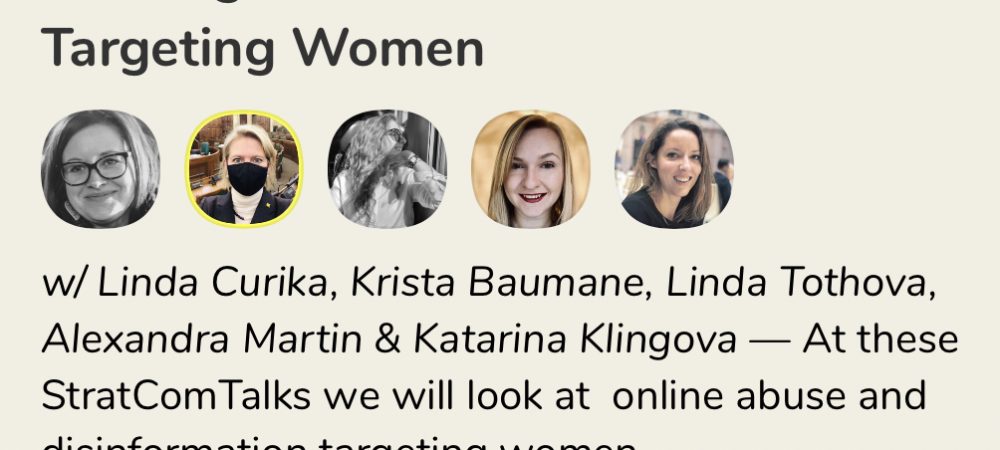During CEE Her’s first appearance on Clubhouse, Katarina Klingova, Senior Research Fellow of Democracy and Resilience at GLOBSEC Policy Institute; Linda Tothova, Policy Assistant and Project Coordinator at GLOBSEC Brussels Office and the Centre for Global Europe; Krista Baumane, Member of the Parliament of Latvia; and Linda Curika, Public Affairs Officer at NATO StratCom, discussed the so-called “silencing effect” of an “online abuse targeting women.”
From the offset, the speakers highlighted distressing UN data, which indicate that women are 27-times more likely to be subjected to cyber violence. Based on IPU/PACE‘s extensive interviews with 123 women from 45 European countries in 2018, 58% of parliamentarians and members of staff have experienced targeted attacks on social networks. This violence may take various forms ranging from tech-facilitated trafficking, image-based abuse and trolling, to sexual harassment. However, when attempting to tackle this online abuse, the speed of information spreading, the difficulty of content removal, and the anonymity of the perpetrators do not contribute to women’s feeling of safety. Katarina Klingova explained the struggle of regulating large online platforms and elaborated on how counterproductive gender quotas might be if the “silencing effect” was to be combated by these efforts to employ more women.
Krista Baumane explained that while the rapid digitalisation of most sectors since the start of the pandemic has provided women with a unique opportunity to become involved in public life, this has likewise made women a target of online attacks. The speakers, however, mentioned groundbreaking initiatives such as the European Commission‘s #DigitalRespect4Her, which was launched to raise awareness of the issue of online harassment of women.
According to a study carried out by Pew Research Centre in 2017, women between 18 and 29 years old are 21% more likely to be harassed online than men of the same age. The psychological effects of such cyber abuse are, based on Amnesty International‘s findings, comparable to the detrimental impact of physical abuse and may involve depression, sleep disruption, loss of self-esteem, and anxiety.
Women are considerably more exposed to cyber abuse and one of the long-term consequences of the Covid-19 pandemic has been an increased reliance on digital spaces. The end result of this combination is a visibly exacerbated “silencing effect” of online harassment. Linda Tothova, while quoting GLOBSEC’s Report on Absent Voices, said that although the effort to raise awareness of this issue is far from short-term, the key stakeholders and institutions need to account for these actions when employing female experts since only 17.52% of the V4’s public institutions were in 2020 represented by women.
The discussion drew on the report on the Finish female ministers’ online abuse, recently published by NATO StratCom.

